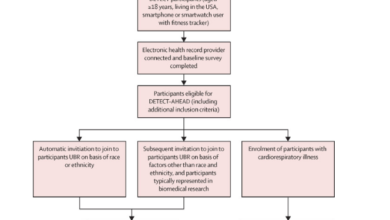How a Genetic Twist Could Revolutionize Weight Loss! Discover the Breakthrough Study at Weill Cornell Medicine.”

A recent Weill Cornell Medicine study unveils a genetic Weight Loss variant within the GIP receptor that could confer resistance to obesity by modifying metabolism. Mice harboring this variant exhibited enhanced sugar processing and maintained a leaner physique. This breakthrough, coupled with the revelation that the variant influences insulin release, introduces novel prospects for combating obesity, underscoring the significance of comprehending genetic disparities in response to anti-obesity medications.
The Weill Cornell Medicine investigation underscores a potential link between a specific human genetic variation in the glucose-dependent insulinotropic polypeptide (GIP) receptor and increased resistance to obesity. Weight Loss Published in the journal Molecular Metabolism on November 2, the study delves into how human genetic diversities impact susceptibility to weight gain.
Weight Loss
By introducing a human genetic Weight Loss variant associated with a leaner body mass index (BMI) into mice, the researchers observed superior sugar metabolism and sustained leanness compared to mice with a more prevalent receptor variant. This finding may pave the way for innovative obesity treatments, especially pertinent given the substantial prevalence of obesity in the United States.
The study’s senior author, Dr. Timothy McGraw, a professor of biochemistry at Weill Cornell Medicine, emphasizes the transformative potential of basic science research in unraveling intricate biological processes. The investigation centered on the GIP receptor’s Q354 gene variant, which, when present, alters cellular behavior, leading to more efficient metabolism.
Genetic variants, naturally occurring differences in DNA sequences among individuals, play a crucial role in human diversity. Genome-wide association studies indicate that around 20% of people of European descent possess one copy of the GIP receptor with the Q354 gene variant, while approximately 5% have two copies. The GIP receptor interacts with a hormone released in response to glucose levels post-meal, and individuals with this variant may experience modified metabolism, reducing their obesity risk.
Using CRISPR-Cas9 technology, the researchers genetically engineered mice to express the human variant of the GIP receptor, mirroring its human counterpart. Female mice with the variant displayed leanness on a standard diet, while male mice were protected from weight gain when exposed to a high-fat diet that induced obesity in their counterparts without the variant.
The study delves into the impact of a single amino acid change in the GIP receptor gene, revealing that mice with the variant were more responsive to the GIP hormone, leading to increased insulin release. This heightened sensitivity contributed to more efficient glucose processing, potentially providing an advantage against obesity.
Analyzing the behavior of cells with and without the variant exposed to glucose or the GIP hormone, the researchers discovered that the GIP receptor variant lingered inside the cell compartment four times longer than the typical receptor. This prolonged retention may facilitate enhanced communication within cells, aiding in more efficient sugar processing.
While the study illuminates the potential benefits of this genetic variant, further research is warranted to validate its impact on receptor behavior, especially in other cell types like brain cells involved in hunger regulation. The findings also underscore the increasing interest in targeting the GIP receptor for obesity treatment, aligning with the recent FDA approval of weight loss drugs interacting with similar receptors.
Dr. Lucie Yammine, the study’s lead author, underscores the significance of understanding receptor behavior, advocating for potential drug development to regulate GIP receptor activity and location as a promising avenue for combating obesity. Dr. McGraw emphasizes the need to explore how individuals with different genetic variants in the GIP receptor respond to existing weight loss medications, suggesting a precision medicine approach for personalized weight loss interventions. The study, titled “Spatiotemporal regulation of GIPR signaling impacts glucose homeostasis as revealed in studies of a common GIPR variant,” was published in Molecular Metabolism in November 2023.




